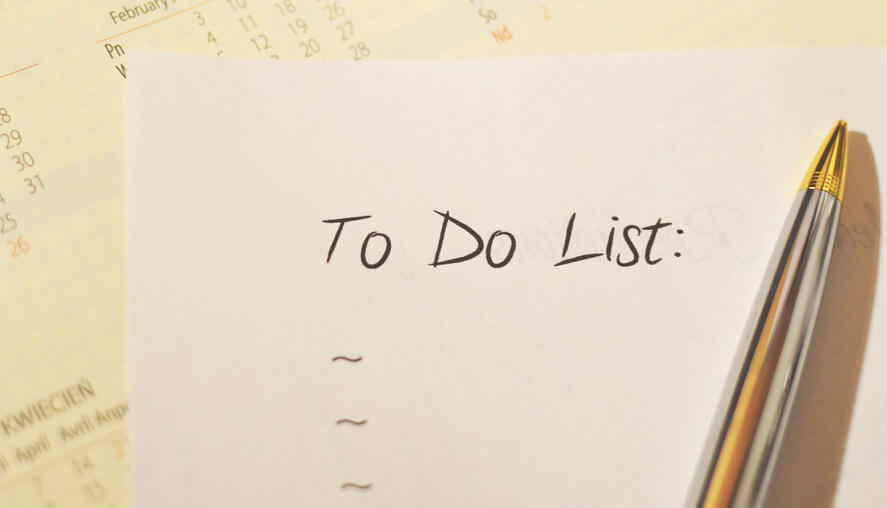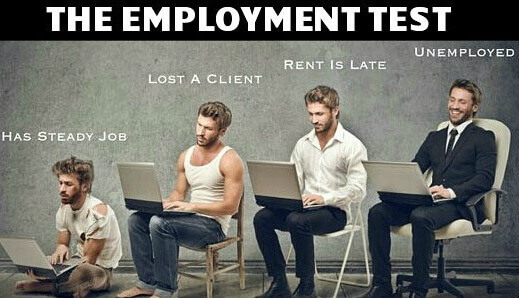Interview Tips for Web Developers

Job interviews…
Some hate it and the others lie about not hating it :)
There are 2 scenarios here:
1 – This is your first web developer interview.
2 – This is your second (or more) web developer interview.
I’ll cover some tips for both of these scenarios in a very simple and logical way that makes it easier to understand.
Before we begin, it’s important to understand a few things before the actual interview which is different for every single person.
Here are some things to look at:

Have you ever been for ANY job interview before?
If yes, you should feel more at ease even if this is your first web developer job interview.
If no, you need to think smart and realise that you need to prepare better than the rest.
How’s your experience looking?
If you have experience working with other developers, you have an advantage.
If you don’t have any experience working with developers, you can start crying definitely still get the job but it just got a bit harder. If you have worked with ANY other colleagues in previous non-related jobs, then make sure you mention it in the interview and try to find similarities within the team environment where possible. If NO experience at all, then you need to bribe the interviewer bring your A-GAME!
How’s your portfolio looking?
If you have a good portfolio (experience creating multiple websites) then you definitely have an advantage.
If you don’t have a good portfolio or nothing at all, you can still get the job, however, your chances have decreased significantly.
How’s your communication skills?
If it’s easy for you to start and hold a conversation and you speak clearly, effectively and with sense, you have the upper hand.
If the opposite is true for you, then realise it and think of some ways to improve on this as it will count against you overall.
How’s your technical skills?
If you have all the necessary technical skills for the specific job + more than required, you are on the right track.
If you come short of the minimum technical skills your chances of getting the job have dropped significantly (hopefully your persuasion skills are good then).
Now, don’t misinterpret what I am saying here… you can be the worst communicator and you can still get the job because your experience and skillset level far outweighs any communication weaknesses and the same for the other way around.
Ideally, you would want to tick all the ‘boxes’ I mentioned above as it greatly improves your chances of getting the job.
The most overlooked aspect of almost every single interview is this:
Not thinking about the interview from the INTERVIEWER perspective…
Think about it for a second… what are things that you would like to see from a new employee that you hardly knew about if you were the one interviewing someone else?
The interviewer would mainly like to know 3 things:
- Can the employee do the work?
- Can the employee communicate well?
- Would I/my team be happy to work with this person?
It’s very simple, but it’s amazing how many people overlook this. Stop thinking like the employee for a change and look at the bigger picture… it will help put everything else in perspective.
So, practically, this is what you need to do:
It all starts with your resume (CV). I often hear of people stressing so much about this, but honestly, it’s actually easier than what people hype it up to be.
What you must do:

If you get anything out of this whole article, take this… always think of the outcome in more detail than the input. In this case, what is the outcome? Once you hand in your resume, chances are it will be amongst many others in the pack.
Let’s say there are 50 resumes on the desk and you are the one going through the resumes. You will filter them between ‘interested’ and ‘not interested’, right? So, what will influence you to put a resume in the ‘interested’ column?
Design

It all starts with how it is designed and how it looks. If you see a resume with ugly fonts, poor alignment and bad structure, it doesn’t leave a nice impression on you and you are more likely to be drawn to the better-looking resumes and go through them in more detail.
It’s almost like someone going for a financial management interview at a formal bank in casual clothes. You would probably think, what’s this person doing?
Although it’s not in person yet, the principle still applies on paper. Your impression counts and people naturally make assumptions based on what they can see – especially for resumes.
Errors

Double check spelling errors (use Grammarly). It’s quite unbelievable to see how many spelling errors one can spot in resumes. Don’t assume that your resume is perfect. Be on the safe side and ask someone you can trust to proofread it and point out the errors for you.
Stand out from the crowd

Chances are you are not the first person going in for the interview, so make a lasting impression. Do your best to research the company and speak about what you’ve read about them. If possible, also see what type of solution you can provide in the interview as well.
When I went in for a job interview as a Digital Marketer at quite a large company, I went through all of their websites before the interview and noticed a few broken links, SEO issues (read more about SEO here) and some poor reviews on Hello Peter as well as some overall suggestions to improve sales. When I mentioned these findings, it helped me stand out from the crowd and showed initiative from my part (and I got the job). I urge you to follow this same principle in whatever way you can.
Sell yourself

It's important to remember that in an interview, you are ‘selling yourself.’ Unless you are like a certain new president, this may be challenging for you. It doesn’t happen all the time, so while you need to be true to who you are, you also need to leave nothing unsaid and have a slightly different mindset.
Try be more confident in your interview and really put yourself out there. Leave nothing left to be said. Make sure your interviewers have no doubt about who you are, what you’ve done, what you can do, and why you will be an asset to them.
Make it count
You have one chance. Believe in yourself. There may be more than one interview, but approach each interview as the first and final interview – don’t have any regrets when you walk out.
What you mustn’t do:

Don’t add things like ‘Twitter clone, Pinterest clone’ etc. to your list of websites/apps as your experience.
Contrary to popular belief, this is actually going to count against you.
There are dozens of sites out there that guides you step-by-step to create these clones. Anyone with a computer and the basics can do what you’ve mentioned on your resume so it’s really not worthwhile to mention it. It shows you are just good at copying. Real web development is problem solving.
If you do mention it, the person going through the resumes will be like, “Really? You are proud of this?” Just be on the safe side, rather leave this out. If you can create the clone WITHOUT any guidance, then that is more impressive.
Don’t assume you should go into the interview dressing like James Bond (i.e. suit and tie). In fact, many, if not most developers dress quite casually for work. So, if you come to the interview looking all dashing, it can actually show you might be a complete noob (a beginner’s beginner).
The best thing to do is just confirm before the interview about what dress code the company has then dress accordingly.

When it comes to getting to know your technical skills, you can almost guarantee that you will have to do “whiteboarding.” This is just a coding challenge that you will receive and you will need to come up with the solution by writing it out on the whiteboard.
Did I just say, “write?” … yes, I did. That means no coding on a PC or googling some syntax (code tags) you forgot.
As you write on the board, you will need to explain your thought process to those watching you from behind. Usually, it’s a senior developer and some manager at the least.
Lesson: practice writing your code on paper and become good enough to dominate challenges in the interview.
For some practice, take a look at: InterviewCake, CodeWars and CodeKata
Added tip: if you forget your code and come up blank, just roll up in a ball on the floor and start crying don’t get frustrated and give up – this is the worst thing you can do. Rather keep trying and show you don’t give up. Even if you don’t get it right, HOW you deal with the scenario presented is almost as important as if you got the solution right or not.
That brings me to another underrated topic and that is your attitude…
A skill can ALWAYS be taught, but attitude is something of far more worth than that. WHO WE ARE and HOW WE REACT to things is much more important than WHAT WE KNOW.
Ignore the exceptions here and look at the bigger picture in this context. I enjoy speaking with business people. I’m fascinated with how they started, what their regrets are, how they see things, etc. and one thing I see throughout is that they mention something like this:
I would much rather hire someone who has the right attitude than someone who has all the skills, but lacks the right attitude.
According to Forbes, they seem to also agree.
Are you the type to always complain and talk bad about others or are you the one who always tries to find a solution and always tries to bring out the positivity in others?

THIS is what is important…
I would take it one step further and say that it’s not what we know, but it’s what we DO with what we know.
You can know advanced Java, C++ and 27 other programming languages but yet someone who just knows an intermediate understanding of 5 programming languages can get the job – why? This doesn’t make sense…
If it were true for all interviews, the person who knows the most will ALWAYS get the job. If you live in the real world, we both know this is far from the truth. This fact alone is a testament to that fact that it’s not ONLY the skillset that guarantees you the job…
I’ll mention something that not too many people mention, but it DOES happen (legal or not).

Recruiters/interviewers DO research who you are. It might be checking your Facebook, Twitter, LinkedIn or Github profiles, but the more serious the job, you can be more certain that this will happen.
Bottom line: keep this in mind. Some people treat their social accounts like strange anonymous forums, but you can actually tell so much about a person by a single tweet – in my view at least.
Some general interview questions to prepare for:
- Tell me a bit about yourself?
- What are your weaknesses?
- Why should we hire you?
- What is your greatest accomplishment?
- What is your biggest failure?
- Do you have any questions?
- Can you show us your portfolio?
Your Web Portfolio
Think about it in more detail… say you go for an interview and you sit next to 3 other candidates for the interview. All of you have the same college/university qualification which states that you’ve studied programming and you know how to code. What will set you apart from each other then? Maybe how you get along with the interviewer in this case, but on paper at least; you are all the same…
Now, imagine this same scenario above, but YOU have a portfolio of 3-5 websites that you’ve created by freelancing on the side or by creating websites for businesses and you bring this ‘proof’ along to the interview. You will instantly stand out from the rest of the candidates and your chance of getting the job has significantly increased.
Your portfolio is what sets you apart from everyone else and it will eventually make your qualification a piece of paper – seriously.
Bottom line is… you need a brilliant portfolio to show off what you’ve done.
If you are still unsure about building your portfolio, then please email me and I’d love to talk to you because it is vital that you understand the importance of this.
If you are thinking, “but I don’t have a formal programming qualification.” I’d like to address your thoughts on this very simply: I am a high school dropout, I taught myself how to code and it worked out fine BECAUSE I built up a portfolio of websites and businesses and that was my ‘piece of paper.’ There are MANY self-taught programmers out there who have followed a similar path and if your portfolio is good enough, you really don’t need a qualification (although it can help).
You should always ask some questions at the end of the interview (unless they cut the interview short). Here are a few questions you could ask:
“Do you use Github pull requests for code reviews or what do you use?”
“What type of methodology do you use, SCRUM or AGILE?”
Then ask general questions about the company history, their products/services and company culture.
PRO QUESTION: “Is there anything about my resume or this interview that concerns you?”
5 ACTION TIPS:

NETWORK
I mentioned in a previous article that networking is very important, but not the type of networking you may think…
Most developers want to go to networking events with other developers, but they should be going to events for business owners. After all, it’s not developers who hire developers…
BUILD YOUR PORTFOLIO
It doesn’t matter if you can code in your sleep while dreaming of Japanese flying squirrels, you (and me) need to always be working on our portfolio.
Laurence, from Learntocodewith.me has an awesome free portfolio course that covers the basics well.
LEARN
Always be learning. If you haven’t checked out the courses page yet, check it out. Regardless of whether you are a noob or grand master, there are courses for you.
BE AN ALL-ROUNDER
As I mentioned earlier, there are quite a few things which contribute to you getting the job. Be safe, and try master all of them like your resume, communication skills, portfolio, attitude, etc.
BE PERSISTENT
It’s not all fluff and roses… sometimes it takes hard work, working smart and persistency to get the job. If your priorities are right and you really want a job, you will align your habits and actions accordingly. Don’t give up.
PS: Don’t ask your mom to phone the company and ask if you got the job - this usually doesn't go down well.
 by Kyle Prinsloo Last updated Jan. 29, 2017
by Kyle Prinsloo Last updated Jan. 29, 2017






